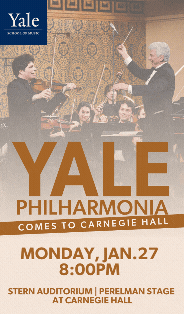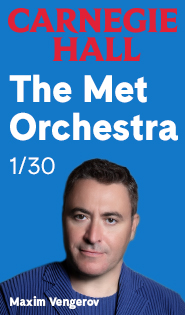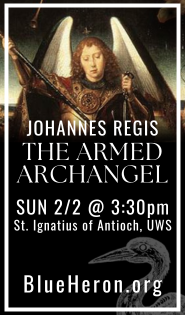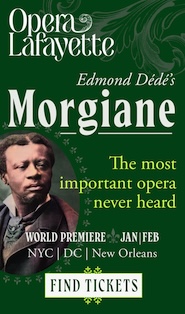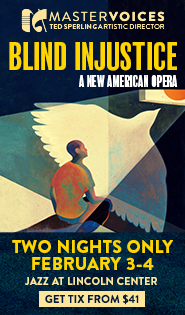Met’s “Don Carlo” impressive individually, a work in progress collectively
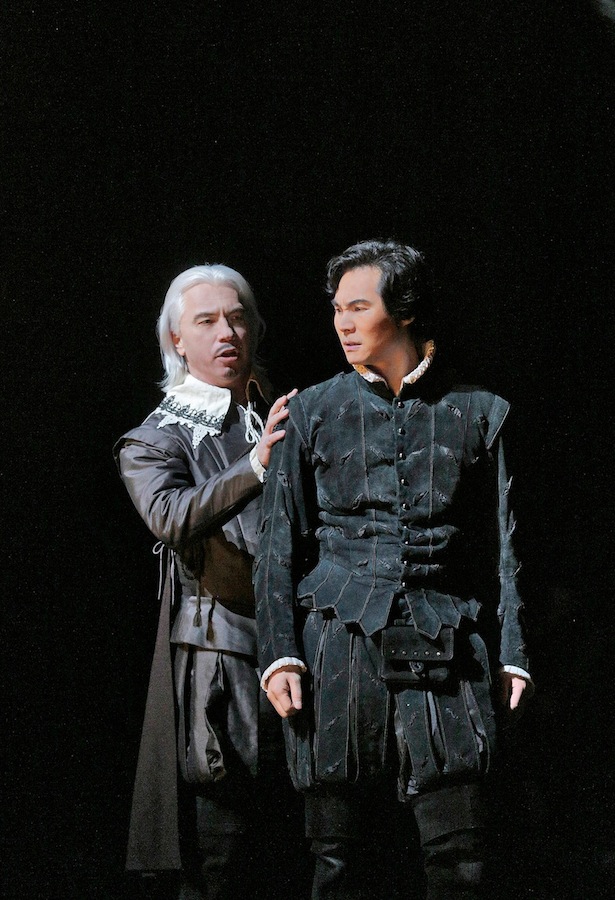
Dimitri Hvorostovsky and Yonghoon Lee in Verdi’s “Don Carlo” at the Metropolitan Opera. Photo: Ken Howard
The Metropolitan Opera was fairly well packed on Monday for the return of Verdi’s Don Carlo. Nicholas Hytner’s 2010 production, which strips away frills to present the bare essentials of the opera in stark relief, is among the best productions unveiled at the house during the Peter Gelb era. Between the powerful staging and a formidable cast, this Don Carlo had tremendous promise and there was a great deal of fine music-making. But it was hard not to feel that it should have been better.
Don Carlo is by no means a star vehicle; it is one of the great ensemble pieces of the operatic repertoire, and so a weak lead will not necessarily scuttle it. Barbara Frittoli had a rough go as Elisabetta, struggling to project and sounding especially wide in her upper register—she was able to reach the top notes of “Tu che le vanità,” but had to make a stop or two along the way to get there.
But one weakish link in a core cast of five would seem like a pretty good bet on most nights. Yonghoon Lee overcame a rocky start to give an excellent vocal performance, indecipherable Italian notwithstanding. At his best he was able to produce a clear, caramel tone and unleash gleaming top notes without a hint of strain. As his faithful compatriot Rodrigo, Dmitri Hvorostovsky swaggered characteristically, but he still has the voice to get away with it—a spectacularly dark, weighty baritone that climbs easily to the role’s highest notes. His tone, too, was smoother than it has been in recent years, allowing him to excel just as much in the lyrical material as in his macho bellowing.
Ferruccio Furlanetto seems to be the go-to man for the role of Philip at every house in the world, and with good reason: his portrayal of the king is one of the wonders of the operatic stage, a complete interpretation that exemplifies the very best of operatic performance. His rendition of the anguished “Ella giammai m’amo” was, as ever, an interpretation of profound depth, giving a glimpse of his innermost thoughts as his sound filled the house. Even at 65, there are hardly any signs of wear on Furlanetto’s voice—it remains a massive, dark, woolen instrument, and he steers it with amazing precision.
Ekaterina Gubanova stepped into the role of Princess Eboli and made it her own, projecting a sensual presence without any extraneous mugging. Her voice is dark enough to fit the sultry character, even if one might wish for a little more weight at the bottom of her chest voice. But it is also flexible enough to toss off the acrobatics of “Nel giardin del bello” without so much as a second thought, making it a seductive, rather than gymnastic, display. Her account of “O don fatale,” moreover, was the best the Met has heard in a while, an intense performance in which she visibly and audibly worked herself into a heroic frenzy.
But as powerful as the characters’ various monologues were, everyone seemed to be in his or her own operatic world. The ensemble numbers felt detached, no matter how beautifully sung. Lee’s and Hvorostovsky’s timbres were a great match, yet even their memorable Act II duet failed to stir the spirit.
Yannick Nézet-Séguin was not blameless, struggling early on to keep ensemble tight. The sound that he coaxed out of the Met orchestra, though, was exquisite, and, as the evening wore on, a dramatic and emotionally charged reading emerged. The sonic precision with which he wielded the orchestra was a thrill to hear, whether he was weaving a feathery whisper or blowing the roof off. This was an interpretation of symphonic power and scope, which in this most massive of Verdi scores, is not off the mark. Even with the characteristically solid work of the chorus, the Met Orchestra was the star of the evening.
James Morris makes another celebrity appearance in this run as the Grand Inquisitor. His is not as thunderous as other voices heard in this role (thunder may not be something he can muster any more), but there is an icy directness to his sound that is fitting, especially when set against the rich color and humanity of Furlanetto’s Philip.
If there was one actor onstage consistently connected to her role and her surroundings it was Amanda Woodbury, whose debut brought a silvery sparkle to the trouser role of Tebaldo. She was entirely alive to her fellow actors, overflowing with charm, and it was a joy to watch her strut confidently about the stage. One hopes that the rest of the cast can take a cue from her as this run continues. There’s too much talent collected here to deliver anything less than a memorable Don Carlo.
Don Carlo runs through April 25 at the Metropolitan Opera. Nadia Krasteva, making her company debut, assumes the role of Eboli beginning April 15. metopera.org
